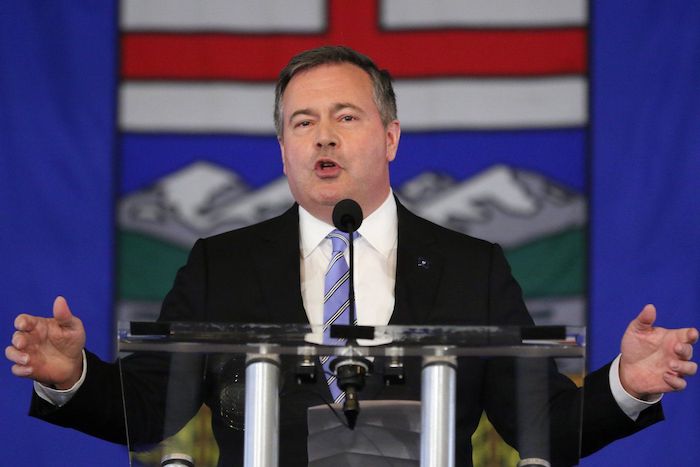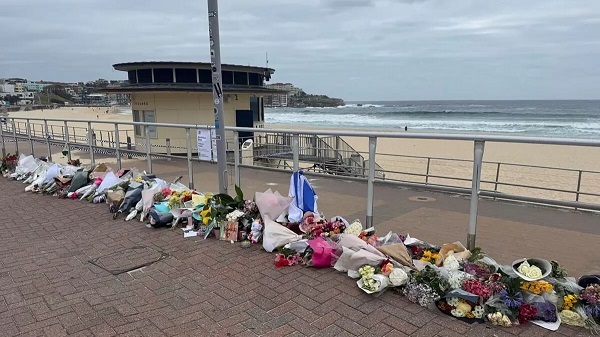Uncategorized
UCP MLA says Albertans do not want Kenney 2.0

Article submitted by Red Deer South MLA Jason Stephan
Time for Kenney to Put His Straw Men Away
Kenney wanted a new base. The base wanted a new leader. Despite Kenney’s political games seeking to manipulate his own democratic check and balance, he lost, and popular sovereignty won.
Popular sovereignty is the principle that the authority of government is created and sustained by the consent of its people. Benjamin Franklin expressed this principle as follows “free governments, the rulers are the servants and the people their superiors and sovereigns”.
Alberta needs more popular sovereignty, more checks and balances on the use and abuse of power. Kenney gave a “grassroots guarantee”. The grassroots said stand up to Ottawa. Kenney said “yes” and did “no”.
Kenney is a career politician. Soon he will be able to start receiving his Ottawa gold-plated pension at 55, much more than a hundred thousand each year, for the rest of his life. Kenney has a vested interest in the status quo.
What about Salma Lakhani, Alberta’s lieutenant governor? Prior to her appointment by Trudeau in 2020, she donated over $25,000 to the corrupt Trudeau Liberal party. Was she appointed because she was one of the largest, and only donors in Alberta, to Trudeau’s party? Is her obvious support for Trudeau, the worst prime minister in Canadian history, representative of Albertans? Like Kenney, she also chose to cast aspersions on a Sovereignty Act for Alberta, but she is a figurehead enjoying privilege of a political elite, also having a vested interest in the status quo.
Great leaders lead in love and inspire the best in those they serve. They remember the principles of popular sovereignty, that their position is only “of the people, by the people, for the people.”
In his leadership review, Kenney called the people of Alberta who disagreed with him “kooks”, “lunatics” and “bugs”. How did that work out for him?
Kenney is now calling the Sovereignty Act “nuts”, “cockamamie” and “catastrophically stupid”. Is that going to produce unity? No.
Kenney says he is “not endorsing or opposing a particular candidate”. We all know that is not true.
Kenney not only engages in patterns of name calling, but also patterns of saying one thing and doing something else. Many no longer trust Kenney.
Is Kenney thinking that if he cannot win, or his intended Kenney 2.0, then he will sabotage to try to make sure no one can?
Kenney is calling the Free Alberta Strategy, the organization who formulated the original version of an Alberta Sovereignty Act, a “far right extremist group”. I participated in some of their townhalls. So did Danielle Smith and Todd Loewen. So did some of my MLA colleagues seeking to protect Alberta businesses and families from Ottawa. Kenney sounds like Trudeau. Are we now part of a “fringe minority” with “unacceptable views”?
Kenney knows it is inappropriate to intermeddle in the leadership race to replace him, so Kenney is trying to be sneaky, doing indirectly what he knows he should not do directly.
Isn’t Kenney acting like Trudeau? Doesn’t Ottawa seek to do indirectly, what constitutionally it is not allowed to do directly, such as with Alberta’s constitutional authority over its oil and gas resources? Didn’t Alberta’s Court of Appeal describe Trudeau’s carbon tax as a sneaky “constitutional trojan
horse”?
Isn’t Trudeau proposing a new carbon tax or cap and trade that singles out and disproportionately punishes Alberta? Wouldn’t that inflict more economic “chaos”, chasing out additional billions in investment and Alberta jobs with it? What is Kenney doing about it? Drafting a sternly worded letter?
Isn’t the purpose of the Sovereignty Act, to assert and defend constitutional parameters that Ottawa habitually ignores and attacks?
I know and respect each of the UCP leadership candidates. But Albertans do not want Kenney or a Kenney 2.0 and some of them need to take care to not act like Kenney, put the straw men away, and stop misrepresenting the Sovereignty Act and then attacking the worst version of it manufactured out of their misrepresentations, only existing in their minds. If Sovereignty Act is so bad, instead of fear mongering with straw men, let’s hear your ideas and solutions.
If candidates want to walk the talk on unity, stop looking the other way, and ask Kenney to do what he said he would do and be quiet. That will produce more unity and that is what Albertans want.
Uncategorized
Cost of bureaucracy balloons 80 per cent in 10 years: Public Accounts

The cost of the bureaucracy increased by $6 billion last year, according to newly released numbers in Public Accounts disclosures. The Canadian Taxpayers Federation is calling on Prime Minister Mark Carney to immediately shrink the bureaucracy.
“The Public Accounts show the cost of the federal bureaucracy is out of control,” said Franco Terrazzano, CTF Federal Director. “Tinkering around the edges won’t cut it, Carney needs to take urgent action to shrink the bloated federal bureaucracy.”
The federal bureaucracy cost taxpayers $71.4 billion in 2024-25, according to the Public Accounts. The cost of the federal bureaucracy increased by $6 billion, or more than nine per cent, over the last year.
The federal bureaucracy cost taxpayers $39.6 billion in 2015-16, according to the Public Accounts. That means the cost of the federal bureaucracy increased 80 per cent over the last 10 years. The government added 99,000 extra bureaucrats between 2015-16 and 2024-25.
Half of Canadians say federal services have gotten worse since 2016, despite the massive increase in the federal bureaucracy, according to a Leger poll.
Not only has the size of the bureaucracy increased, the cost of consultants, contractors and outsourcing has increased as well. The government spent $23.1 billion on “professional and special services” last year, according to the Public Accounts. That’s an 11 per cent increase over the previous year. The government’s spending on professional and special services more than doubled since 2015-16.
“Taxpayers should not be paying way more for in-house government bureaucrats and way more for outside help,” Terrazzano said. “Mere promises to find minor savings in the federal bureaucracy won’t fix Canada’s finances.
“Taxpayers need Carney to take urgent action and significantly cut the number of bureaucrats now.”
Table: Cost of bureaucracy and professional and special services, Public Accounts
| Year | Bureaucracy | Professional and special services |
|
$71,369,677,000 |
$23,145,218,000 |
|
|
$65,326,643,000 |
$20,771,477,000 |
|
|
$56,467,851,000 |
$18,591,373,000 |
|
|
$60,676,243,000 |
$17,511,078,000 |
|
|
$52,984,272,000 |
$14,720,455,000 |
|
|
$46,349,166,000 |
$13,334,341,000 |
|
|
$46,131,628,000 |
$12,940,395,000 |
|
|
$45,262,821,000 |
$12,950,619,000 |
|
|
$38,909,594,000 |
$11,910,257,000 |
|
|
$39,616,656,000 |
$11,082,974,000 |
Uncategorized
Trump Admin Establishing Council To Make Buildings Beautiful Again


From the Daily Caller News Foundation
By Jason Hopkins
The Trump administration is creating a first-of-its-kind task force aimed at ushering in a new “Golden Age” of beautiful infrastructure across the U.S.
The Department of Transportation (DOT) will announce the establishment of the Beautifying Transportation Infrastructure Council (BTIC) on Thursday, the Daily Caller News Foundation exclusively learned. The BTIC seeks to advise Transportation Secretary Sean Duffy on design and policy ideas for key infrastructure projects, including highways, bridges and transit hubs.
“What happened to our country’s proud tradition of building great, big, beautiful things?” Duffy said in a statement shared with the DCNF. “It’s time the design for America’s latest infrastructure projects reflects our nation’s strength, pride, and promise.”
“We’re engaging the best and brightest minds in architectural design and engineering to make beautiful structures that move you and bring about a new Golden Age of Transportation,” Duffy continued.
Mini scoop – here is the DOT’s rollout of its Beautifying Transportation Infrastructure Council, which will be tasked with making our buildings beautiful again. pic.twitter.com/
9iV2xSxdJM — Jason Hopkins (@jasonhopkinsdc) October 23, 2025
The DOT is encouraging nominations of the country’s best architects, urban planners, artists and others to serve on the council, according to the department. While ensuring that efficiency and safety remain a top priority, the BTIC will provide guidance on projects that “enhance” public areas and develop aesthetic performance metrics.
The new council aligns with an executive order signed by President Donald Trump in August 2025 regarding infrastructure. The “Making Federal Architecture Beautiful Again” order calls for federal public buildings in the country to “respect regional architectural heritage” and aims to prevent federal construction projects from using modernist and brutalist architecture styles, instead returning to a classical style.
“The Founders, in line with great societies before them, attached great importance to Federal civic architecture,” Trump’s order stated. “They wanted America’s public buildings to inspire the American people and encourage civic virtue.”
“President George Washington and Secretary of State Thomas Jefferson consciously modeled the most important buildings in Washington, D.C., on the classical architecture of ancient Athens and Rome,” the order continued. “Because of their proven ability to meet these requirements, classical and traditional architecture are preferred modes of architectural design.”
The DOT invested millions in major infrastructure projects since Trump’s return to the White House. Duffy announced in August a $43 million transformation initiative of the New York Penn Station in New York City and in September unveiledmajor progress in the rehabilitation and modernization of Washington Union Station in Washington, D.C.
The BTIC will comprise up to 11 members who will serve two-year terms, with the chance to be reappointed, according to the DOT. The task force will meet biannually. The deadline for nominations will end Nov. 21.
-

 Business2 days ago
Business2 days agoOttawa Pretends To Pivot But Keeps Spending Like Trudeau
-

 Business17 hours ago
Business17 hours agoCanada Hits the Brakes on Population
-

 Crime6 hours ago
Crime6 hours agoBrown University shooter dead of apparent self-inflicted gunshot wound
-

 Energy2 days ago
Energy2 days agoLiberals Twisted Themselves Into Pretzels Over Their Own Pipeline MOU
-

 Censorship Industrial Complex2 days ago
Censorship Industrial Complex2 days agoHow Wikipedia Got Captured: Leftist Editors & Foreign Influence On Internet’s Biggest Source of Info
-

 Frontier Centre for Public Policy19 hours ago
Frontier Centre for Public Policy19 hours agoCanada Lets Child-Porn Offenders Off Easy While Targeting Bible Believers
-

 International2 days ago
International2 days agoBondi Beach Shows Why Self-Defense Is a Vital Right
-

 Crime2 days ago
Crime2 days agoThe Uncomfortable Demographics of Islamist Bloodshed—and Why “Islamophobia” Deflection Increases the Threat









